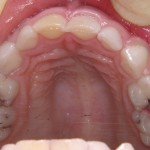
We are seeing a move towards more conservative methods of managing caries and also an increasing need to consider the patients perspectives of treatment. This study aimed to compare children’s behaviour and pain perception when approximal dentinal caries lesions in primary molars (in children aged 3–8 years old) were managed with three treatment strategies; conventional [read the full story…]








